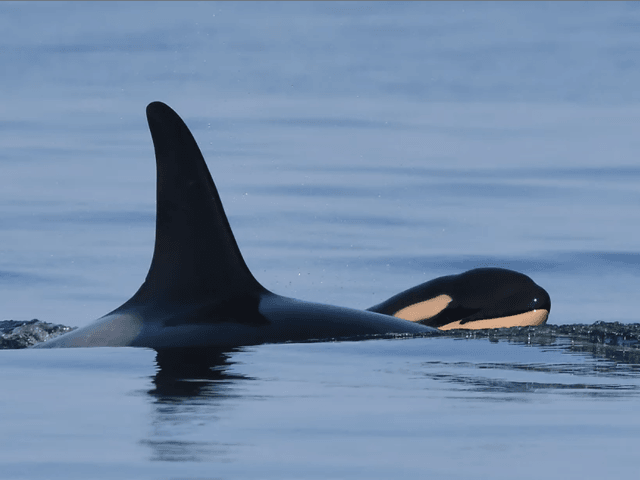An orca whale that once spent 17 days carrying her stillborn calf in a period of mourning gave birth once again to a healthy calf.
The orca, known by researchers as J35 and nicknamed Tahlequah, was a poster child for the orcas of the Pacific Northwest that were becoming an endangered species.
There were 88 when the orcas made the endangered species list, and the population has gone down further since then. The birth of the baby orca, which researchers have spotted for the first time on Saturday, brings the total population to 73, the New York Times reported.
“It’s a bit of a nail-biter right now,” said Dr. Deborah Giles, a whale researcher at the University of Washington’s Center for Conservation Biology. “I can’t help but be thrilled that she had this baby and this baby didn’t die right away. Everybody is worried and on pins and needles, wondering if this calf is going to make it.”
The orcas, also known as killer whales, have been struggling through a variety of problems. They cannot find enough quality prey to eat, and they have to deal with toxic pollutants in the water and noise pollution from the ships that pass through the ocean.
If a whale does manage to get pregnant, its pregnancies are bound to fail. Approximately 40 percent of calves born die within their first year.
J35 gave birth to a calf in 2018 that died shortly after its birth in Victoria, British Columbia. The mother continued to carry her calf through the ocean and dove down deep to catch it when she lost her grasp of it.
The Times reported that it is not uncommon for orcas to do that for a little while, but what baffled scientists is how J35’s journey lasted 17 days and covered 1,000 miles.
Ken Balcomb, the founding director of the Center for Whale Research, took note of J57, the newest calf, on Saturday, and located it in the Strait of Juan de Fuca, which is between the state of Washington and the Canadian province of British Columbia.
“The baby looked very robust and lively, so I have good expectations for this one surviving,” Balcomb said.

COMMENTS
Please let us know if you're having issues with commenting.